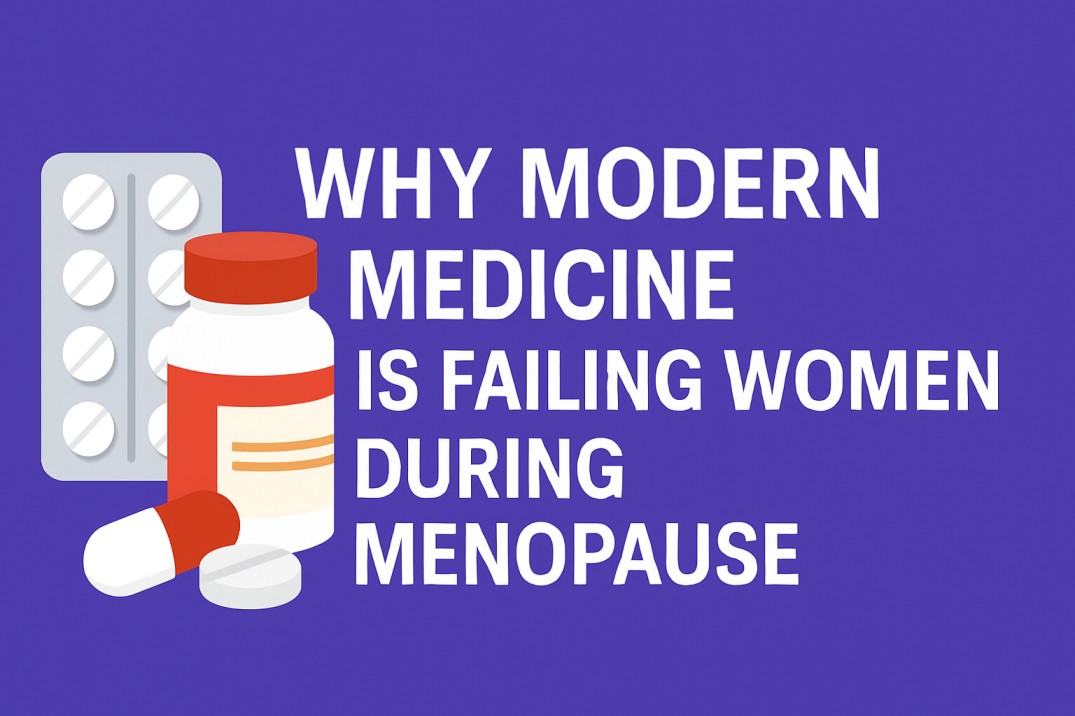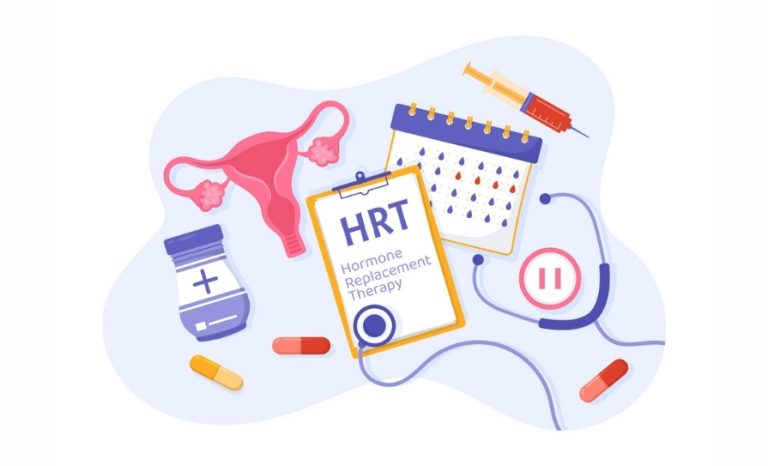Women struggle alone. Their bodies change. Medical professionals dismiss symptoms as “just aging.” The journey through menopause represents one of healthcare’s greatest blind spots, leaving millions searching for answers beyond prescriptions that address only fragments of their experience.
The conventional approach to menopause typically focuses on hormone replacement therapy while overlooking the complex interplay of systems that define this transition. When we reduce menopause to estrogen deficiency, we miss the ocean for a single wave. The body speaks in systems, not symptoms.
As healthcare evolves, we must recognize menopause as a natural transition requiring comprehensive support rather than a disease state needing correction. This perspective shift opens doors to solutions that honor women’s complete experience.
The Hormone Symphony Gone Silent
Menopause marks the end of reproductive years, but its impact extends far beyond fertility. The gradual decline in DHEA, estradiol, testosterone, and progesterone creates ripple effects throughout the body’s interconnected systems. Hot flashes, sleep disruption, mood changes, and brain fog represent visible manifestations of deeper biochemical shifts.
These hormones function as chemical messengers influencing everything from bone density to brain function. Their decline affects metabolism, cardiovascular health, immune response, and cognitive processing. Understanding this intricate web helps explain why standard approaches focusing solely on estrogen replacement often fall short.
Women report feeling fragmented by conventional care. One specialist addresses hot flashes, another bone density concerns, while yet another prescribes an antidepressant for mood changes. Few practitioners connect these dots into a coherent picture of whole-person health.
Reframing Menopause Through a Functional Lens
Functional medicine offers a refreshing alternative by addressing root causes rather than isolated symptoms. This approach recognizes that hormone balance depends on multiple bodily systems working in harmony. Adrenal function, thyroid health, gut integrity, liver detoxification, and cellular metabolism all influence how a woman experiences menopause.
The functional approach begins with a comprehensive assessment. Advanced hormone testing provides insights beyond standard panels, revealing metabolites and patterns that explain why two women with identical estrogen levels might have vastly different symptoms. This nuanced understanding allows for personalized interventions that address individual biochemistry.
When we honor biochemical individuality, we discover why some women thrive on bioidentical hormones while others benefit more from herbal support or lifestyle modifications. No single protocol works for everyone.
Building the Foundation for Hormonal Resilience
Nutrition stands as the cornerstone of hormonal health. Specific foods support hormone production, metabolism, and cellular sensitivity. Cruciferous vegetables aid estrogen metabolism. Omega-3 rich foods reduce inflammation that can exacerbate symptoms. Blood sugar stability prevents the insulin spikes that disrupt hormonal balance.
Movement creates another pillar of menopause wellness. Regular exercise improves insulin sensitivity, supports bone density, enhances mood, and promotes healthy sleep patterns. The type and intensity matter significantly. High-intensity training might stress an already taxed system, while gentle strength training and walking often prove more beneficial during this transition.
Sleep quality directly influences hormone production and clearance. During deep sleep, the body repairs tissues, balances hormones, and clears metabolic waste from the brain. Prioritizing sleep hygiene becomes essential medicine during menopause.
Stress management completes this foundation. Chronic stress drives cortisol dysregulation, which further compromises sex hormone production and utilization. Mind-body practices like meditation, breathwork, and yoga activate the parasympathetic nervous system, creating physiological conditions that support hormonal balance.
The Overlooked Influences on Menopausal Health
Environmental factors significantly impact hormonal health yet rarely enter clinical conversations. Endocrine-disrupting chemicals in plastics, personal care products, and household items can mimic, block, or alter hormone function. Reducing exposure becomes particularly important during hormonal transitions when the body has less resilience.
Gut health represents another critical factor. The microbiome influences hormone metabolism, immune function, and neurotransmitter production. Dysbiosis can lead to estrogen reabsorption, inflammation, and compromised nutrient absorption. Optimizing digestive function supports overall hormonal health.
Liver detoxification capacity determines how efficiently the body processes and eliminates hormones and their metabolites. Supporting phase I and phase II detoxification pathways helps prevent the reabsorption of hormones that can create imbalance.
Integrating Conventional and Functional Approaches
The most effective menopause care combines the best of conventional medicine with functional approaches. Hormone replacement therapy, when appropriate, can provide significant relief. The key lies in proper administration, monitoring, and integration with lifestyle medicine.
Bioidentical hormones, prescribed based on individual needs and genetic factors, offer advantages for many women. The route of administration matters significantly. Transdermal applications bypass first-pass liver metabolism, potentially reducing risks associated with oral administration.
Regular monitoring ensures optimal dosing and safety. Beyond standard blood work, functional testing may include urinary hormone metabolites, inflammatory markers, nutrient status, and thyroid function. This comprehensive assessment guides adjustments and complementary interventions.
The Future of Menopause Medicine
Emerging research in chronobiology, epigenetics, and systems biology promises to further refine our approach to menopause. Understanding how circadian rhythms influence hormone production and metabolism opens new avenues for timing interventions for maximum benefit.
Advances in nutrigenomics reveal how genetic variations affect hormone metabolism and nutrient requirements. This knowledge allows for increasingly personalized protocols that account for individual genetic predispositions.
Technology now enables continuous monitoring of biomarkers, moving beyond the snapshot approach of periodic testing. This dynamic view provides insights into how interventions affect real-time physiology, allowing for more precise adjustments.
Reclaiming Vitality Beyond Hormones
Women deserve more than symptom management during menopause. They deserve comprehensive support that honors their biochemical uniqueness and addresses the foundations of health. When we expand our perspective beyond hormone replacement to include nutrition, movement, stress resilience, sleep quality, and environmental factors, we create the conditions for true vitality.
The menopause transition offers an opportunity to reassess and rebuild health on multiple levels. With the right support, women can emerge from this passage not merely surviving but thriving with renewed energy, clarity, and purpose. This integrated approach represents the future of women’s health, where menopause becomes not a medical problem but a gateway to the most vital years of life.








